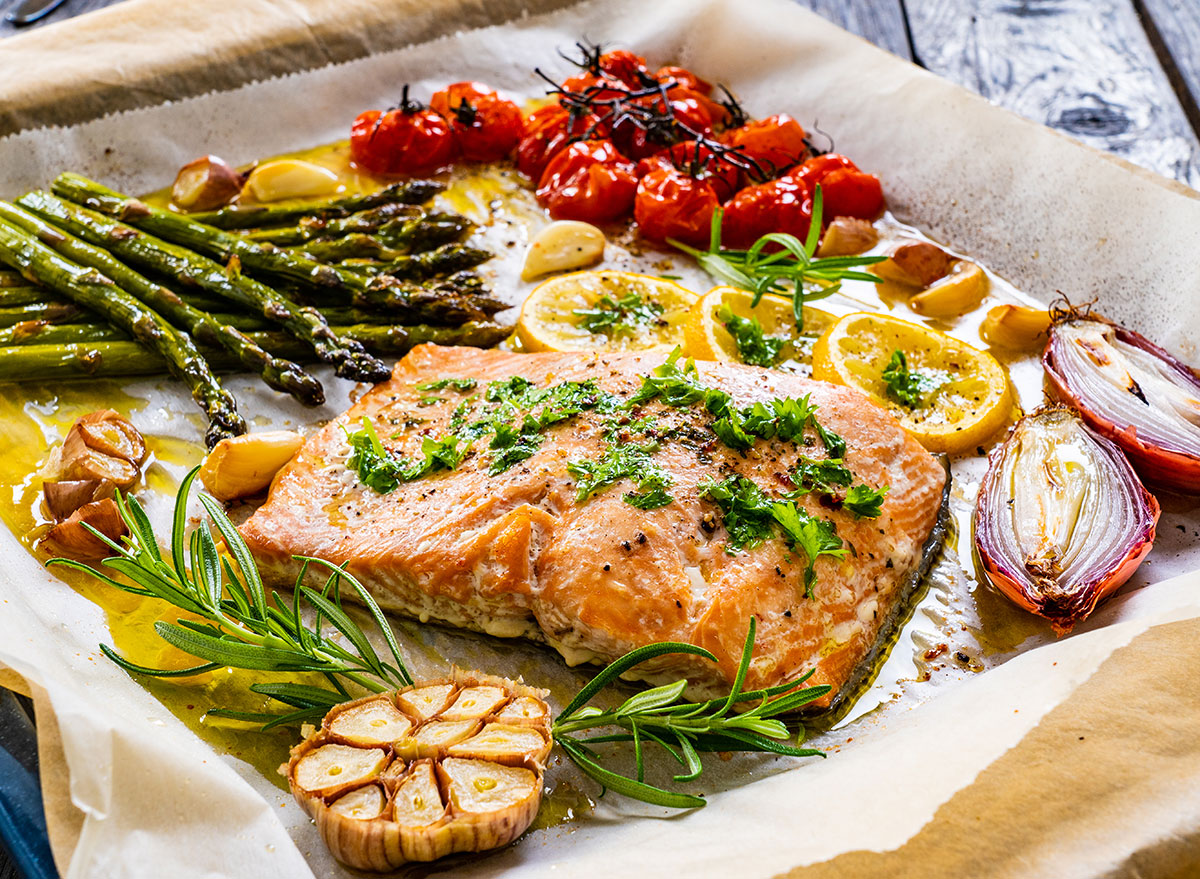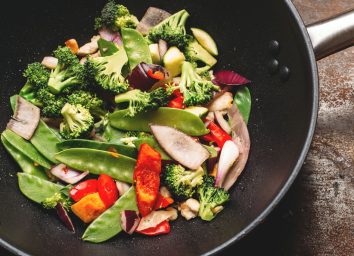Eating This One Food Can Improve Your Bone Health, New Study Says

Between the ages of 25 and 30, most people will hit their peak bone mass. When you're young, your bones go through a process called deposition. Your bones form and continue to buildup calcium reservoirs. However, as you hit that peak bone mass around 30 years of age, your bones will go through resorption—bones are breaking down. Strong bones mean less risk for fractures or developing osteoporosis, and your diet is actually a major factor in how strong your bones will be as you continue to age.
Dairy products are obviously a popular choice for calcium intake, but it isn't the only food known to help strengthen aging bones. In fact, a recent study in The Journal of Nutrition points out that eating vegetables is associated with stronger bones—especially for adults with a low vegetable intake to start.
In this study, 102 adults known for consuming less than one serving of vegetables a day were evaluated in an eight-week trial. One control group was asked to consume around 270 grams of extra vegetables a day, while another group continued their diet as is. By measuring nutrient intake, plasma carotenoids, and other bone-related markers, the results showed positive benefits for bone health for the vegetable-eating control group.
This is likely due to the fact that many vegetables are packed with nutrients that can positively benefit bone health over time, according to the Bone Health & Osteoporosis Foundation. Leafy green vegetables are packed with calcium as well as vitamin K. Tomato products, as well as other red/orange vegetables like sweet potatoes, oranges, bananas, and plantains, are packed with potassium. Vitamin C-rich vegetables and even fruits can help such as bell peppers, broccoli, Brussels sprouts, and strawberries.

Dietary calcium isn't the only bone-strengthening hero.
Don't worry, your doctor is still right—calcium is important for your bones. Calcium is one of the most prominent minerals in your body: 99% of it is found in your bones and teeth alone. The body works to maintain calcium balance in your body by storing it in your bones, making them stronger.
While dietary calcium is certainly important for your bone health, other vitamins play a significant role in strengthening your bones as well. Vitamin D is connected to calcium uptake coming from your intestine and helps to build up bone tissue, hence why vitamin D is also vitally important as you age.
Some evidence also shows a link between vitamin K and the formation of bone, and even shows links to reduced fracture rates and decreased risk of osteoporosis, according to Nutrition.
Dietary potassium helps with neutralizing the acid load in your body, which reduces calcium loss and keeps your bone mineral density strong, according to Osteoporosis International. Consumption of magnesium has also been associated with higher bone mineral density and lower risk of bone fractures, says The American Journal of Clinical Nutrition. It works in tandem with calcium and vitamin D to ensure healthy bones are maintained.
Lastly, vitamin C is essential for the production of collagen—a protein that is essential for healthy bones and skin, according to American Bone Health. Studies show a positive link between vitamin C consumption and healthier bones, as well as fighting free radicals in the body that can be detrimental to your bone health.
Vegetables are rich in these different nutrients, hence the positive link with healthier aging bones. The regular consumption of a variety of these nutrients—calcium, vitamin K, potassium, magnesium, and vitamin C—all contribute to better bone health.
For even more healthy aging tips, read these next:








